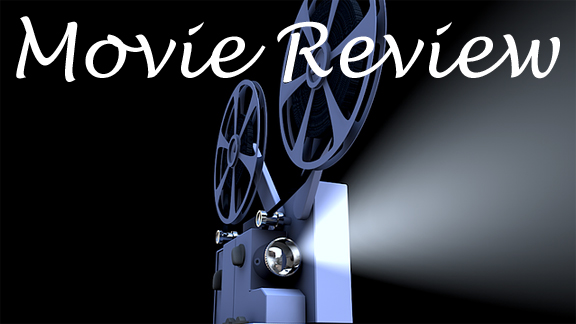I never would have guessed Deadpool would be the first “X-Men” character other than Wolverine to get a solo movie. But thanks to actor Ryan Reynolds’ unwavering support of the project, here it is, and “Deadpool” — now available at Redbox – is unlike any other “X-Men” movie. For better or worse? That depends greatly on the moviegoer’s taste. But for what it is, it’s well done.
A change from the last time we saw him
First, some backstory: Deadpool only appeared in one previous entry, “X-Men Origins: Wolverine,” where he was a wisecracking mercenary who was later made into the supermutant Weapon XI by the evil William Stryker. More so than a fleshed-out character, Deadpool was a personality and then a plot point in that movie, and although he survived in a post-credits sequence, people didn’t particularly want to see more of him. Although Reynolds dodged blame, the script’s insubstantial use of Deadpool was criticized almost as much as Taylor Kitsch’s dull interpretation of Gambit.
And indeed, a Deadpool movie never did happen on that timeline. But the new timeline created by “Days of Future Past” has given Reynolds, screenwriters Rhett Reese and Paul Wernick and director Tim Miller an excuse to retell the character’s origin story. They take full advantage, and then some: This origin is different on almost every point.

“Deadpool” (2016)
Director: Tim Miller
Writers: Rhett Reese, Paul Wernick
Stars: Ryan Reynolds, Morena Baccarin, T.J. Miller
On the original timeline, Deadpool comes of age as a supermutant in the 1980s, but now he exists in modern day, as attested by the many references he spouts – for example, he wonders if Liam Neeson’s “Taken” character is a bad parent after allowing his daughter to be kidnapped three times. In “Origins: Wolverine,” his name comes from the fact that his powers are pooled from those of dead mutants; here, it comes from the Dead Pool betting board at the bar.
The soundtrack — featuring “Angel of the Morning,” “You’re the Inspiration” and “Careless Whisper” – seems to place the film in the 1980s, a nod to where the main “X-Men” timeline is at (“Apocalypse” takes place in 1983), while also following up on “Guardians of the Galaxy’s” successful use of classic music. But as noted, many other pop-culture references place the film in modern day.
However, Deadpool (real name Wade Wilson, no relation to the former Vikings quarterback) only teams up with two X-men – Colossus and Negasonic Teenage Warhead – so the 2016 version of Xavier’s School isn’t particularly spoiled for viewers, except that we know it exists at this point on the timeline.
Not aimed at younger fans
“Deadpool” will not appeal to all “X-Men” fans, and indeed, it is NOT aimed at younger fans. It’s the series’ first R-rated entry, and it earns that rating with violence, swearing and sex – roughly in that order, as you’d expect from a modern American film.

It’s not particularly serious – in one of my least favorite quips, Deadpool wonders which professor he’s going to meet, McAvoy or Stewart – but it’s not stupid, either. It’s extremely violent, but mostly in a cartoony way; when Deadpool counts down his use of 12 bullets in the opening sequence, blowing his enemies’ heads off, it’s not particularly hilarious to me, but nor is the tone off-point.
Probably 75 percent of “Deadpool’s” glib zingers land. It’s a mix of a couple different kinds of comedy: It’s aware that it’s a movie, and it makes note of its clichés – thus mostly undercutting them — in a fashion similar to “22 Jump Street.” It also trades in “shock value” humor, although it doesn’t take long for a viewer to become desensitized to the crudeness, such as the title character’s obsession with pleasuring himself.
Still, I grow weary of a lot of these movies that ask us to admire how self-aware they are: Reese and Wernick’s “Zombieland” didn’t do it for me, nor did “Scott Pilgrim vs. The World,” on which Miller handled the visual effects. “Deadpool” is a notch above that standard.
A major benefit of hiring Miller as the director is that the visual effects flow smoothly into the narrative. The R rating is also a huge advantage here. On most “X-Men” films, punches are being pulled for the sake of a PG rating. Magneto will trap someone by wrapping metal around them, rather than by stabbing them to death with metal.
No restrictions
I know that’s how the game is played, so it doesn’t really bother me, but it’s refreshing that “Deadpool” has no such restrictions. (Giving a sense of balance to the violence, Deadpool takes punishment as well as he dishes it out. Like Wolverine, he has nearly unlimited healing capabilities.)
I’m not “Deadpool’s” No. 1 fan, but I do appreciate the crisp structure of the film. While it is an intentional wild ride, it’s not a mess. This isn’t a case of throwing a bunch of mutants at the screen — Colossus is the only other big-name mutant here, although a post-credits sequence promises Cable in the sequel. Deadpool’s goal of finding Ajax (Ed Skrein), the man who brought out Deadpool’s buried mutant powers through literally torturous experiments, is clear.
More importantly, his desire of wanting a face worthy of his lover, the prostitute Vanessa (“Firefly’s” and “Gotham’s” Morena Baccarin), gives him a grounded human element. Deadpool narrates from the beginning that this is a love story, and he’s not lying. (By the way, his face isn’t all that hideous. He looks like a cross between the Sexiest Man Alive and Darth Vader without his mask on.)
Twisted playfulness
Similarly, although bartender Weasel (former “Chelsea Lately” regular T.J. Miller) makes plenty of jokes at Deadpool’s expense, we can tell they actually are friends when it comes down to it. And while Deadpool takes advantage of his cabbie friend by never paying for his rides, I can tell he likewise wouldn’t think it’s funny if his friend got killed in the crossfire of one of his fights.)
That’s not to say that “Deadpool” is a brilliant study of human interaction or that it’s overflowing with emotional depth, but rather that it has some genuine relationships for a cynical viewer like me to latch onto.
Too many of these postmodern, meta movies get lost in their own pseudo-cleverness and back-patting, resulting in an ephemeral finished product, but the sense of twisted playfulness of Reynolds and his team mostly hits the mark. I wouldn’t want all “X-Men” movies to be presented with such glibness – and it’s the first entry I won’t bother adding to my DVD collection — but it’s impressive that the saga is flexible enough to make room for “Deadpool.”

